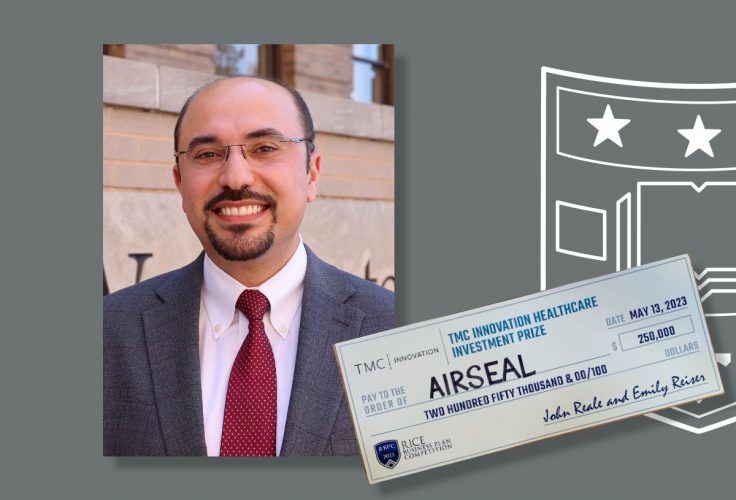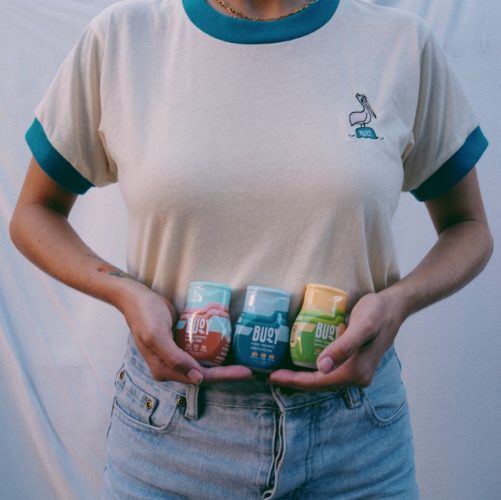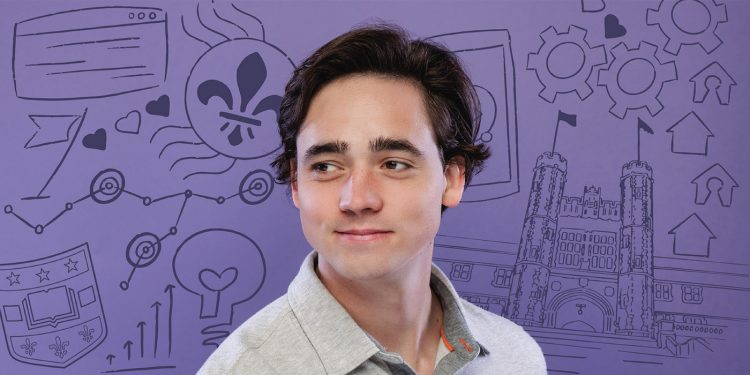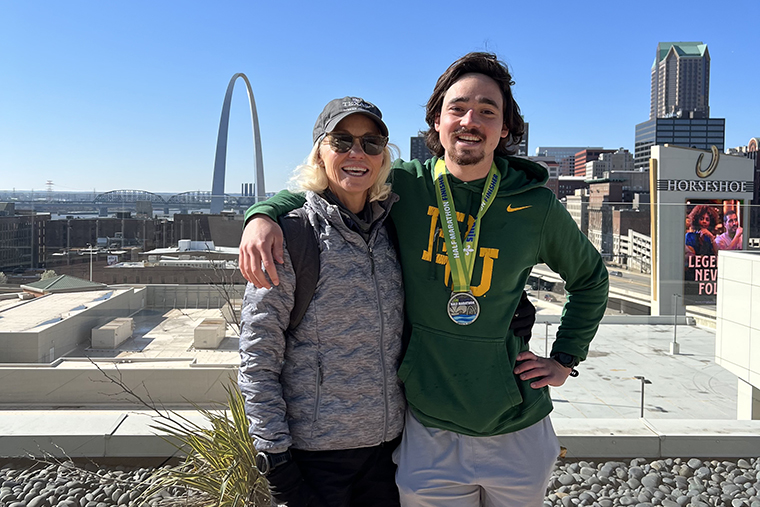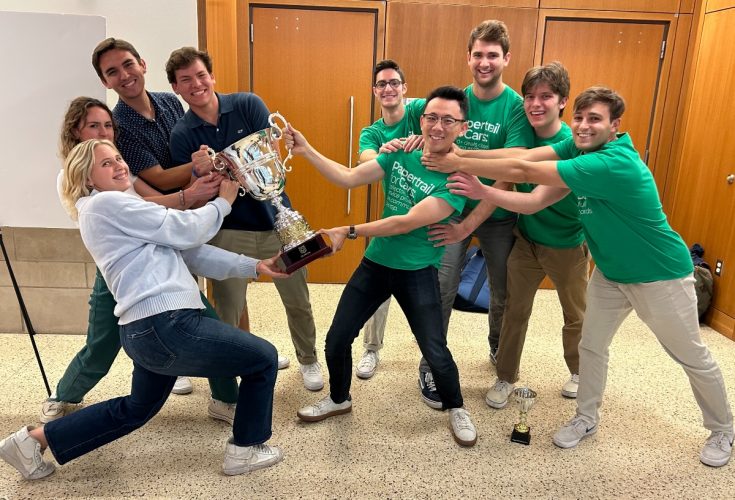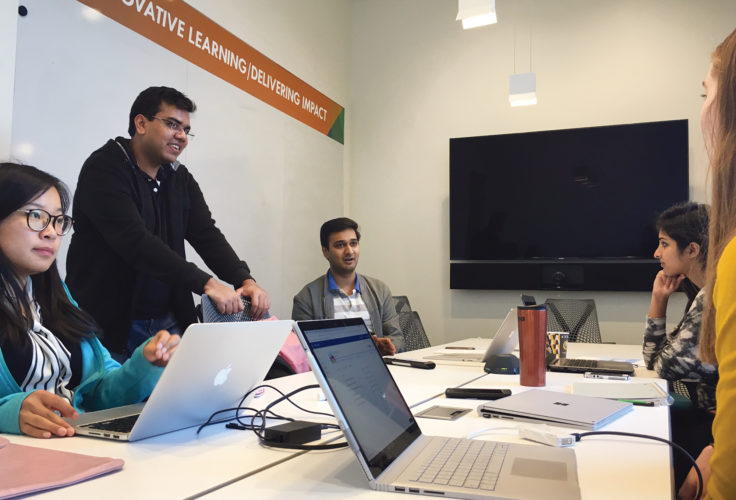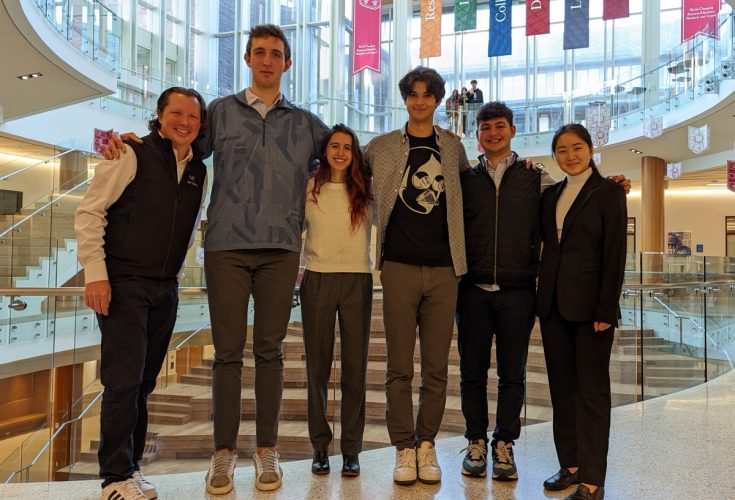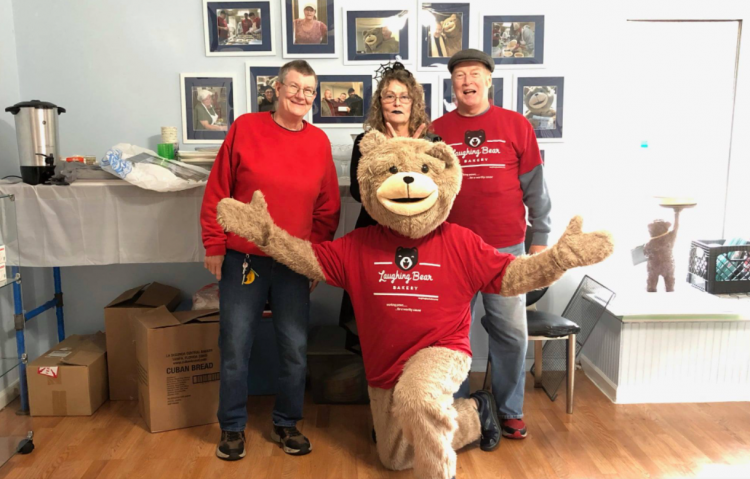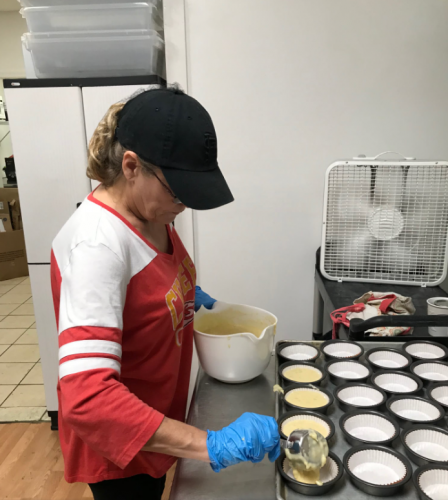A WashU-based life sciences startup that patented a groundbreaking bloodstream marker that flags potential cardiovascular disease recently won a $250,000 investment prize in a major national pitch competition.
Dr. Mohamed A. Zayed, EMBA 2023, is cofounder of AirSeal, founded after he and his colleagues accidentally discovered an enzyme that attaches to the “bad cholesterol” in the bloodstream. AirSeal later created a simple blood test for the enzyme that can flag patients who might be at risk for cardiovascular disease.
Zayed pitched the company and its groundbreaking, patented discovery in mid-May at the Rice Business Plan Competition in Houston. The competition doled out $3.4 million in prizes to 42 startups.
“It was an extraordinary experience, which was full of excitement, thrill and a lot of hard work,” Zayed said. “It was also wonderful to be surrounded by such an accomplished field of innovators with transformative ideas that have the potential to change the world.”
AirSeal won the Texas Medical Center Innovation Healthcare Investment Prize of $250,000. The company also won a $500 prize for best pitch in the life sciences category. More than 1,000 companies initially sent pitches in hopes of an invitation to the competition May 11-13.
“This investment is an important milestone in our young company’s life,” said Zayed, who is also an associate professor at the WashU School of Medicine and director of its CardioVascular Research Innovation in Surgery and Engineering Center. “It was our honor and privilege to represent WashU and the Olin Business School at the event.”
The founding team was recently a finalist in the 2023 Global Impact Award, hosted by WashU’s Skandalaris Center for Interdisciplinary Innovation and Entrepreneurship.
The next milestone
He said the substantial prize would be a significant catalyst toward AirSeal’s next key milestone: developing a product the FCA can evaluate. “It provides us with access to additional experts and partners as we continue to execute our key deliverables,” Zayed said.
The enzyme, known as circulating Fatty Acid Synthase, or cFAS, is essential for making saturated fatty acids that can lead to atherosclerosis—a plaque buildup that hardens the arteries. The research team conducted clinical studies in hundreds of patients to develop a blood test for cFAS, publishing the results in multiple journals. Zayed credited Olin’s Ron King, emeritus professor of accounting, and Doug Villhard, director of the entrepreneurship program, for helping the AirSeal team take the discovery to the next level.
“We leveraged their guidance and expertise,” he said. “They provided critical feedback and advice that helped us develop a competitive business plan and pitch.”
Pictured at top: Dr. Mohamed A. Zayed, EMBA 2023, with an image of the check he and his team received at the Rice Business Plan Competition in Houston.


